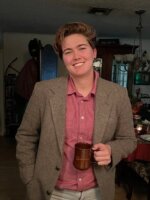Panelists outlined the work ahead for building trust in public health and immunization efforts during an annual vaccine policy symposium held Friday by the Baker Institute Center for Health and Biosciences and The Immunization Partnership.
The irony of the symposium's timing – less than 24 hours after President Elect Donald Trump named Robert F. Kennedy Jr. as his pick to head the Department of Health and Human Services – was not lost on speakers.
"In fact, you may all think we were quite prescient to pick today for this, for this symposium,” said Terri Burke, executive director of The Immunization Partnership, a Houston-based nonprofit that advocates for disease prevention.
Trump has said he promised to let Kennedy “go wild on health.” Though much remains unclear about Kennedy’s plans, the longtime vaccine skeptic has said he wants to explore removing fluoride from water and encourages people to “make individual assessments” about vaccinations.
Health issues ranked low on the presidential campaign trail — a point that Burke said gives her hope that discussions about science and vaccinations stay low on the incoming Trump administration’s priority list.
However, to Burke, Kennedy’s nomination and the ongoing political climate seem to cast a morning “red sky for scientists” — a sailor’s adage that suggests an oncoming storm.
“What does that storm look like?" Burke asked. "Those with stronger telescopes than mine see a continued uphill battle for those who advocate for evidence-based public health policy."
At the state level, Texas Democratic state Rep. Ann Johnson of Houston said she sees the upcoming legislative session as a time to defend public health provisions – not advance them. The landscape, she added, depends on early session debates that include the fight over the Texas House Speaker post.
“You’re going to find out in the first couple of days of the session whether or not the Texas House is going to hold onto the idea of institution and bipartisanship or if things are really going to go off the rails,” she said.
Speakers during the two-and-a-half-hour presentation also included Dr. Saad Omer, dean of the UT Southwestern Medical Center’s school of public health, and Michael Emerson of the Baker Institute. Omer discussed ways to improve vaccination efforts and combat misinformation.
Emerson’s presentation focused on vaccine hesitancy across communities in the U.S., especially among Evangelical Christians. He made three suggestions: to recognize concerns that communities have without ridicule; to understand the root of concerns; and to make an appeal to biblical values — specifically, scripture focused on common good and community improvement.
“The recipe for success is drawing on biblical teachings and the concept of Christian community,” he said. “And then finally being open to concerns and critiques that this community might have and adjusting where it’s possible is going to be essential to build trust and get groups to work together and support getting the vaccines.”
Got a tip? Email Kailey Broussard at kbroussard@kera.org.
KERA News is made possible through the generosity of our members. If you find this reporting valuable, consider making a tax-deductible gift today. Thank you.



